This article was co-authored by Rebecca Levy-Gantt, MPT, DO. Dr. Rebecca Levy-Gantt is a board certified Obstetrician and Gynecologist running a private practice based in Napa, California. Dr. Levy-Gantt specializes in menopause, peri-menopause and hormonal management, including bio-Identical and compounded hormone treatments and alternative treatments. She is also a Nationally Certified Menopause Practitioner and is on the national listing of physicians who specialize in menopausal management. She received a Masters of Physical Therapy from Boston University and a Doctor of Osteopathic Medicine (DO) from the New York College of Osteopathic Medicine.
There are 13 references cited in this article, which can be found at the bottom of the page.
wikiHow marks an article as reader-approved once it receives enough positive feedback. This article received 12 testimonials and 100% of readers who voted found it helpful, earning it our reader-approved status.
This article has been viewed 114,550 times.
Going through puberty can be a rough time. Your body and mind are changing and growing in ways you might not understand. It can be an uncomfortable or embarrassing phase in your life, but there are ways you can cope. By educating yourself and learning how to handle getting your menstrual cycle (commonly known as your period), changes to your body, and new and more intense feelings and emotions, you can make this stage of your life a little easier.
Steps
Coping with Your Period
-
1Learn everything you can about your period. One of the biggest changes you’ll face during puberty is the start of your period. It can seem very overwhelming and uncomfortable to talk about, but the more you know about it, the more prepared you’ll be.[1]
- Check the library for books on the topic, ask your school nurse if she can give you any information, or talk to your doctor about what to expect or to address any questions you have. Many times it is part of general school curriculum, so you may learn about it sooner or later.
- In addition, talk to your mother, an older sibling, or family member about what their experiences were when they first got their period.[2]
-
2Carry an emergency period kit. You’ll probably feel better about getting your period if you’re ready for it. It can be nerve racking worrying about where you’ll be and what you’ll be doing when it comes. Make an emergency period kit you can carry with you so you’ll be prepared when you get your first period or for any unexpected bleeding.
- Include sanitary pads, liners, tampons, menstrual cups, a clean pair of underwear, and pain reliever.[3]
Advertisement -
3Choose the right pad, tampon, or menstrual cup. Finding the right method to absorb the blood during your period takes some time and experimentation. Pads and tampons come in a variety of absorbencies. The absorbency you need will depend how heavy your flow is, which can vary throughout the several days you are on your period. Consider the following when you’re deciding which method to try first:
- Pads are the easiest method to use when you first get your period. These are rectangular pieces of absorbent material that attach to the inside of your underwear with a strip of adhesive. If your period is heavy, you will probably want a thick, super absorbent pad with wings (pieces of cloth that fold over the sides of your underwear to prevent leaking). On lighter days you may be able to wear a thin panty liner. You should change your pad every four to six hours, depending on your flow and preference.
- Tampons are a little more difficult to use than pads. Tampons are made of absorbent material that is compressed into a tubular shape that is inserted into the vagina to absorb the blood. Many tampons come in a plastic applicator, which can make inserting them easier. They also come in different absorbencies, like super, regular, or light. To use a tampon, relax your body and follow the directions on the box. You will remove it by pulling gently on the string that hangs outside your body. Tampons can often be used if one wishes to swim during their period. You should change your tampon every three to four hours, especially after you use the bathroom.
- A menstrual cup is a small rubber or silicone cup you insert into your vagina to catch the blood before it leaves your body. You should remove and empty the cup several times a day. To do so, follow the instructions on the package.[4]
-
4Experiment with different methods for dealing with pain. Every girl’s period is different so what works to relieve period cramps for your friend might not work as well for you. Talk to your mom and other adult females about what tips and tricks they have for relieving period pain and experiment with these until you find one that works for you.
- Some women use heating pads or hot water bottles to ease pain.
- Pain relievers with ibuprofen might also help. If you’re experiencing a great deal of pain, you can also talk to your doctor about a prescription pain reliever that might give you more relief. They can also help reduce your blood flow.[5]
Dealing with Changes to Your Body
-
1Get a bra when you need one. One of the things girls deal with during puberty is developing breasts. Usually, girls start developing breasts when they are 10 or 11 years old. Once this happens, you may need to wear a bra to feel comfortable. Ask your mom or an older sister to help you find a bra that is the right fit for your body. You can also get sized or measured to find the perfect fit for you. [6]
- It’s tough to know when you’re ready for a bra, but if you answer “yes” to any of the following questions, it is a good indication you’re ready to get one: Do you feel uncomfortable changing in the locker room? Do you feel uncomfortable wearing a light t-shirt because your breasts feel exposed? Are most of your friends wearing bras? Are you developing faster than most of your friends?[7]
- Asking your mom for help picking out a bra can be embarrassing. Remember, she went through the same thing at one time in her life and will be happy to help you. If you’re not sure how to bring it up, try saying something like this: “I’ve been feeling a little uncomfortable about my body lately. I think it might be time for me to wear a bra. Can you help me pick one out?”
-
2Eat healthy, but don’t diet. Another change you’ll face during puberty is that your hips will get wider. This might make you feel like you are gaining weight, but you are actually just developing a more womanly shape. You may be tempted to diet when you see your body changing to get back the shape you had before, but you should instead focus on eating healthy.
- Focus on eating lots of fruits and vegetables, whole grains like whole wheat, oatmeal, and brown rice, and drinking lots of fat-free and low-fat milk, which will help you develop strong bones. In addition, make sure you’re eating a good amount of protein, like fish, lean chicken, beans, nuts, and eggs to give your body energy.[8]
-
3Exercise regularly. In addition to eating healthy, you should also exercise regularly. Exercising will help you stay healthy and feel good about your body, even with all the changes you’re going through. Try playing outside with your friends after school, playing a recreational sport, or taking up running. [9]
- In addition, you might be able to use the exercise equipment at your local YMCA, like treadmills, stair steppers, stationary bikes, and weight machines. Be sure you get proper instruction before using this equipment.
- You could also exercise at home by getting some exercise videos. Look for routines that will allow you to build muscle strength while also providing a cardio workout.
-
4Talk to a parent about how to handle hair growth. Another thing you’ll experience during puberty is hair growth. You’ll begin to develop hair on your underarms and your pubic region. Ask a parent or someone you trust to help you figure out how to deal with your new hair growth.[10]
- For example, you may deal with the hair on your underarms by shaving it or starting to wear deodorant to prevent sweating and body odor.
- You may also have questions about what kind of hair growth is normal. Don’t be afraid to talk to an adult about the changes you’re going through.[11]
-
5Wash your face regularly. Acne is another unfortunate symptom of puberty. As your hormones change, the glands on your face, and maybe even your back, neck, or chest, produce more oil. This excess of oil causes pimples, which can be embarrassing and annoying. To help control acne, try some of the following:
- Use medicated face washes, creams, and wipes. Also, look for non-comedogenic and hypo-allergenic makeup. This type of product won’t clog your pores or cause any other skin reactions.
- If your acne seems particularly bad, you can ask your parents to make you an appointment with a dermatologist, or skin doctor. They can prescribe you medication, face washes, and creams that are more powerful than what you can buy over the counter.
- Avoid using oily makeup, hair products, or lotion. In addition, avoid direct sunlight when you can and don’t ever pick at, squeeze, or try to pop pimples. These things can all make acne worse.
- You acne might be worse when you are on your period or if you are extra stressed out. Take especially good care of your skin during these times.[12]
-
6Wear a panty liner. During puberty you may experience a white, jelly-like discharge from your vagina. This is normal and is your body’s way of cleaning itself. If it bothers you, however, try wearing a panty liner. Your mom or an older family member can help you find the right kind of panty liner.[13]
-
7Learn to handle other people’s reactions to your changing body. You may start to get more attention from people, especially boys, when you go through puberty. Some of this attention may make you feel uncomfortable, but remembering a few things can help you cope:
- If you ever feel uncomfortable about the attention you are getting, speak up and let the person know their actions or words are making you feel uncomfortable and you’d like them to stop. Try saying, “I don’t like when you talk to/touch me that way. Please don’t do it again.”[14]
- It can be tempting to hang out with an older crowd, but you may not be ready to deal with the situations you could face by doing so—like alcohol, drugs, and sexual situations. Spend time with a trusted group of friends your age. This will help you avoid these scenarios. Not to mention, many of your friends are probably going through the same things and having someone to relate to can make puberty easier to deal with.[15]
- People might make comments that make you feel self-conscious about how you look. Instead of dwelling on these comments, focus on the features you like about your body. For example, maybe you really like your hair or your eyes, or maybe you’ve noticed your calves are more defined since you started puberty.[16]
-
8Remind yourself it’s just a phase. Many changes you experience during puberty are uncomfortable. You might feel like you’re never going to feel comfortable in your new body. When you’re feeling this way, remind yourself that puberty is a necessary phase of life and you’ll get through it. [17]
- In the meantime, focus on doing things that make you feel good about yourself. For instance, spend extra time doing your hair in the morning, make sure your fingernails are painted, play a sport you’re good at, or take up a new hobby.
Handling New Emotions, Feelings, and Mood Swings
-
1Express yourself creatively. Puberty can cause you to have all kinds of new feelings and emotions. These can be overwhelming and confusing to deal with. It might help if you try to get your feelings out in a creative way on a regular basis.
- For instance, write about how you’re feeling in a journal, paint a picture, join the choir, or take a dance class. Expressing yourself creatively can help you work through the new things you’re feeling during this time.[18]
-
2Talk to a friend or family member. You may experience mood swings during puberty. Some of these may come about because you are feeling uncomfortable with the changes that are happening to your body, which can make you feel irritated or depressed. If this is the case, it may help to talk to your friends or a close family member, like an older sister or aunt, about what you’re feeling.[19]
- If you’re not sure how to bring it up to your friends or family member, try acknowledging the fact that you’ve been extra sensitive or moody lately and ask if you can talk to them about why. For example, say “I know I’ve been kind of tough to deal with lately. Can I talk to you about what’s making me act that way?”
-
3Take a break. Mood swings can be hard to control even when you know you’re having them. However, sometimes taking a small break from the situation can help you calm down and even out your mood. When you feel yourself getting overly irritated or sensitive, take a break and do something to calm yourself.
- For example, count to 10 or sing a verse from your favorite song in your head. Sometime just taking a few minutes to focus on yourself instead of the situation can help you feel more calm.[20]
-
4Get plenty of sleep. Not getting enough rest can make your already rough mood swings even worse. Being tired can cause you to feel extra irritated or make coping with your emotions more difficult. Aim to get at least eight hours of sleep every night so you can feel refreshed and ready for your day in the morning.[21] Try some of the following tips to help you get a good night’s sleep:
- Try to stick to the same sleep schedule every day. You might want to sleep in or stay up late on weekends, but it can help you sleep better if you stick to the same schedule every day. For example, if you get up at 7:00am for school, try to get up around this time on the weekends too.
- Pay attention to what you eat and drink before bed. Being hungry or super full can make it difficult to sleep. Also, drinking too much before bed can cause you to have to get up multiple times in the middle of the night, interrupting your sleep.
- Coming up with a bedtime ritual can also help you sleep. For example, listen to soothing music or read a book before going to bed. Stay away from watching TV or playing on your phone because electronic activities can actually interfere with sleep.
- Make sure your room is cool, dark, and quiet. These conditions are ideal for sleeping. You can get room-darkening shades, ear plugs, or a fan to help create these conditions.[22]
-
5Address new sexual feelings. Another thing you’ll deal with during puberty is an increase in sexual feelings. This might mean you begin to develop crushes, start to think about other people as “more than friends,” and become more curious about the opposite sex (or the same sex). These feelings are probably new to you so it can be a very confusing time. Do some of the following to help you cope with this aspect of puberty:
- Talk to a trusted, mature adult about sexual health. Reading about sexual health can be helpful, too, but an adult can help you better understand your new feelings and educate you on the different aspects of sexual health.[23]
- Ease into dating by going on group dates or dates that include some kind of activity. For example, go to the movies, play laser tag, or go to a school sporting event.[24]
- You may feel pressured to engage in sexual situations if your friends and peers are, but remember that everyone is different. Never do anything you’re uncomfortable with.[25]
Educating Yourself
-
1Read about puberty. Dealing with the effects of puberty is hard, but it can help you cope with them if you understand what you’re going through. Try finding some books about puberty at your school or local library or searching for articles online about what happens to a girl’s body during puberty. You can also ask your school nurse or doctor to recommend some books that will help you understand puberty. In addition, they may have some pamphlets they can give you to start.[26]
-
2Write down any questions or concerns you have. If you have questions about what will happened to your body and mind during puberty while you’re reading, write these questions and concerns down. You may feel more prepared to talk to an adult if you have a list of questions about the topic.
- Your questions might include things like: When can I expect to see changes in my body? What do I do if I get my period and I’m not at home? Am I going to look different than the other girls in my class?
-
3Talk to an adult. All women have gone through puberty at one time. Ask your mom to answer any questions you have about what kind of changes you’ll face during puberty and how you can handle them. You can also try talking to an older sister, your doctor, your school nurse, or female teachers or coaches about what to expect during puberty and how to cope with it.[27]
References
- ↑ Rebecca Levy-Gantt, MPT, DO. Board Certified Obstetrician & Gynecologist. Expert Interview. 3 April 2020.
- ↑ http://raisingchildren.net.au/articles/puberty.html
- ↑ http://raisingchildren.net.au/articles/puberty.html
- ↑ http://kidshealth.org/en/teens/supplies.html?WT.ac=ctg#
- ↑ Rebecca Levy-Gantt, MPT, DO. Board Certified Obstetrician & Gynecologist. Expert Interview. 3 April 2020.
- ↑ http://raisingchildren.net.au/articles/puberty.html
- ↑ http://kidshealth.org/en/kids/breasts-bras.html#
- ↑ https://www.girlshealth.gov/nutrition/healthy_eating/index.html
- ↑ http://www.cyh.com/HealthTopics/HealthTopicDetailsKids.aspx?p=335&np=289&id=1774
- ↑ Rebecca Levy-Gantt, MPT, DO. Board Certified Obstetrician & Gynecologist. Expert Interview. 3 April 2020.
- ↑ http://raisingchildren.net.au/articles/puberty.html
- ↑ http://pbskids.org/itsmylife/body/puberty/article4.html
- ↑ http://raisingchildren.net.au/articles/puberty.html
- ↑ http://www.cyh.com/HealthTopics/HealthTopicDetailsKids.aspx?p=335&np=289&id=1774
- ↑ http://teens.webmd.com/girls/features/early-puberty-teen-girls
- ↑ https://www.menstrupedia.com/articles/puberty/emotional-changes
- ↑ http://raisingchildren.net.au/articles/puberty.html
- ↑ http://pbskids.org/itsmylife/body/puberty/article6.html
- ↑ https://www.menstrupedia.com/articles/puberty/emotional-changes
- ↑ http://kidshealth.org/en/teens/bad-mood.html#
- ↑ http://kidshealth.org/en/teens/bad-mood.html#
- ↑ http://www.mayoclinic.org/healthy-lifestyle/adult-health/in-depth/sleep/art-20048379
- ↑ https://www.menstrupedia.com/articles/puberty/emotional-changes
- ↑ https://www.newportacademy.com/resources/empowering-teens/teenage-hormones-and-sexuality/
- ↑ https://www.newportacademy.com/resources/empowering-teens/teenage-hormones-and-sexuality/
- ↑ http://pbskids.org/itsmylife/body/puberty/article6.html
- ↑ http://pbskids.org/itsmylife/body/puberty/article6.html


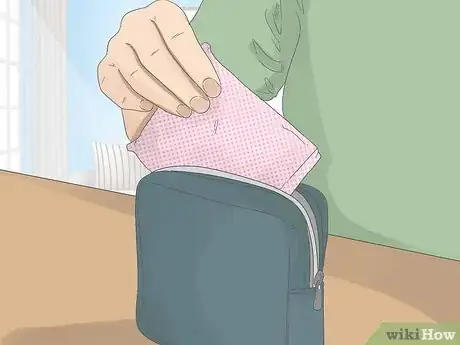
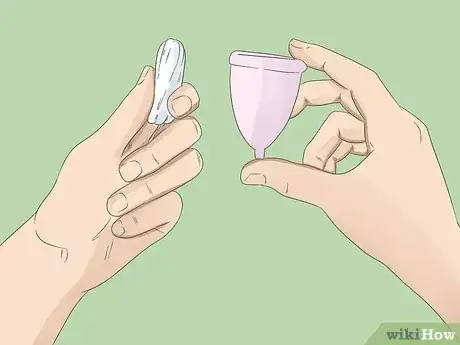
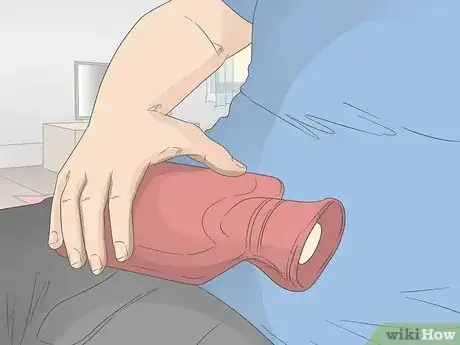



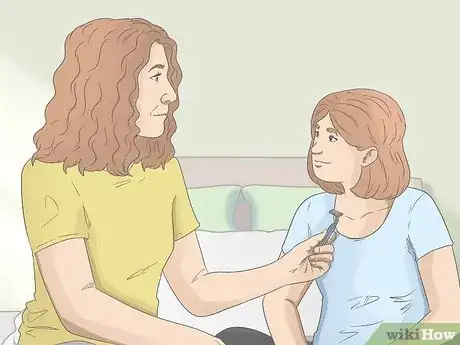
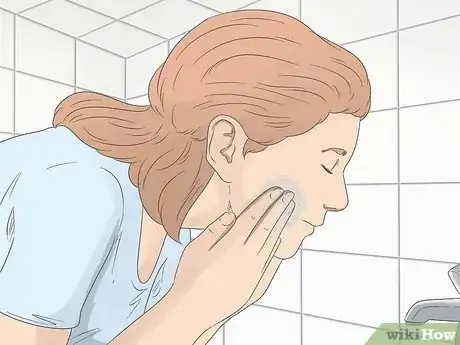
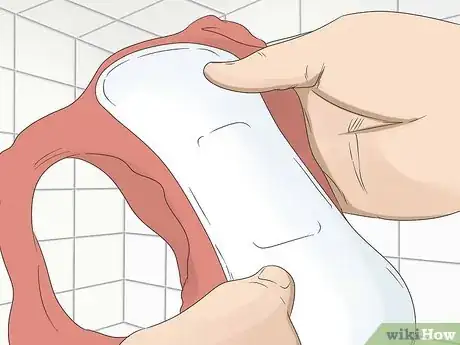





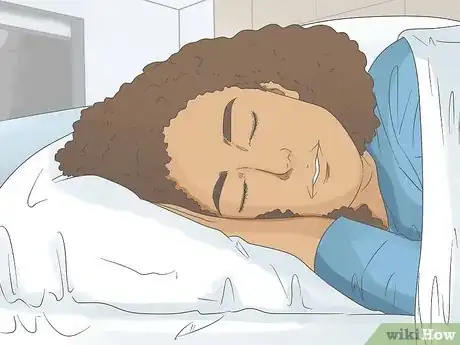





-Step-12-Version-6.webp)

-Step-12-Version-2.webp)

-Step-16.webp)






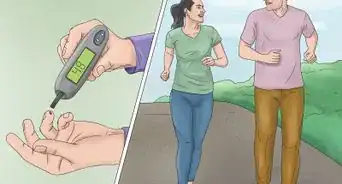










-Step-12-Version-6.webp)
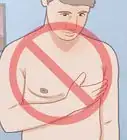
-Step-12-Version-2.webp)


































